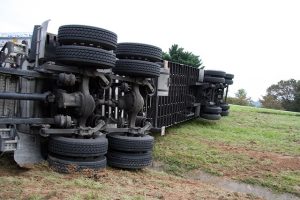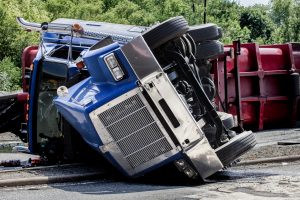Go to Page Section:
Truck accidents result in more fatalities and property damages than standard automotive accidents.
That’s largely due to the mass and size of the trucks.

It can be even worse if a loaded truck runs into various small cars at a very high speed.
You must understand your rights; even if you’re at fault.
You must also know how to file your claim.
In the worst-case scenario, you may need to hire an attorney.
At the Accident’s Scene
When you get involved in a truck accident, the first thing you should do is confirm if you’ve sustained any injury.
Next, check on your passengers and the people in the other vehicle.
Call 911 and make sure they get medical help.
You can also get examined before doing the following:
Get the Other Driver’s Information
Start by collecting the other driver’s information including name, phone number, and license number.
Next, look at the insurance stamp and get the other car’s policy number and license plate number.
Gather Evidence and Call the Police
Examine the two vehicles and take photos.
Write down everything you can remember about the accident and then collect the other driver’s insurance information.
After collecting your evidence, you can finally call the law enforcement.
Even if it’s a fender bender, having law enforcement around can help.
Most importantly, get a copy of the accident report from the police office.
Make sure you go for a checkup and ensure that you don’t sustain an internal injury.
Never assume that you’re ok even if you are not in pain or bleeding.
Contact the Insurance Company
Once you get all the information and all your injuries, if any, treated, you can contact the insurer and report the accident.
This is mandatory even in a no-fault state where your insurance cover won’t have to pay the medical bills of the other victims.
In no-fault states, both drivers don’t have to wait for a lengthy investigation.
They only have to file their claims, and the at-fault driver’s policy will cater for the repairs and your personal injury cover pays for your medical bills.
The at-fault driver’s policy will have to repair or replace the damaged vehicles.
Seek Legal Assistance
If your insurance company doesn’t help you or make things hard for you then, you may have to look for a truck accident lawyer.
An attorney will help you do the following:
- Collect all the right evidence and fill out the proper forms including your medical report.
- Your lawyer will contact the at-fault driver’s insurance company and ensure that you get paid.
- If they prove hard to work with, then you can file your case in court and represent you in court.
- Negotiate with the at-fault or your insurance adjuster and ensure you get paid.
- Represent you in a personal injury case in some states.
Your lawyer will work with you until the case ends and if you will, then the insurance will have to pay you.

Understand Truck Injury Claims
Your insurance claim process will start as soon as you file your claim.
After gathering the above details and getting checked up, you can file your claim and provide the necessary information.
The insurance adjuster will review your claim and examine your medical bills and accident report.
They will also examine any other proof of suffering and pain you may have included in your claim.
Other claims you need to understand include the following:
- Dealing with uninsured drivers: If you get involved in an accident with an uninsured driver then things will be different. Also, it’s illegal to drive an uninsured car, and they will have to deal with the state.
- Personal injury vs. property damage: These two covers are necessary for anyone driving on the roads. Unfortunately, personal injury coverage isn’t mandatory. Personal injury covers part of your health bills, while property damage, like a comprehensive auto cover, will cover your vehicle.
Endnote
The bigger the truck, the more severe an accident will be, especially if the other vehicle is smaller.
You should collect the other driver’s details, contact the police, and help the injured ones.
After getting checked at the hospital, you can contact your insurer and file your claim.
In most states, at-fault, the insurance company always pays for the damages and medical bills.
However, in no-fault states, you will have to pay your respective medical bills, so you must get a personal injury cover.


Leave a Reply